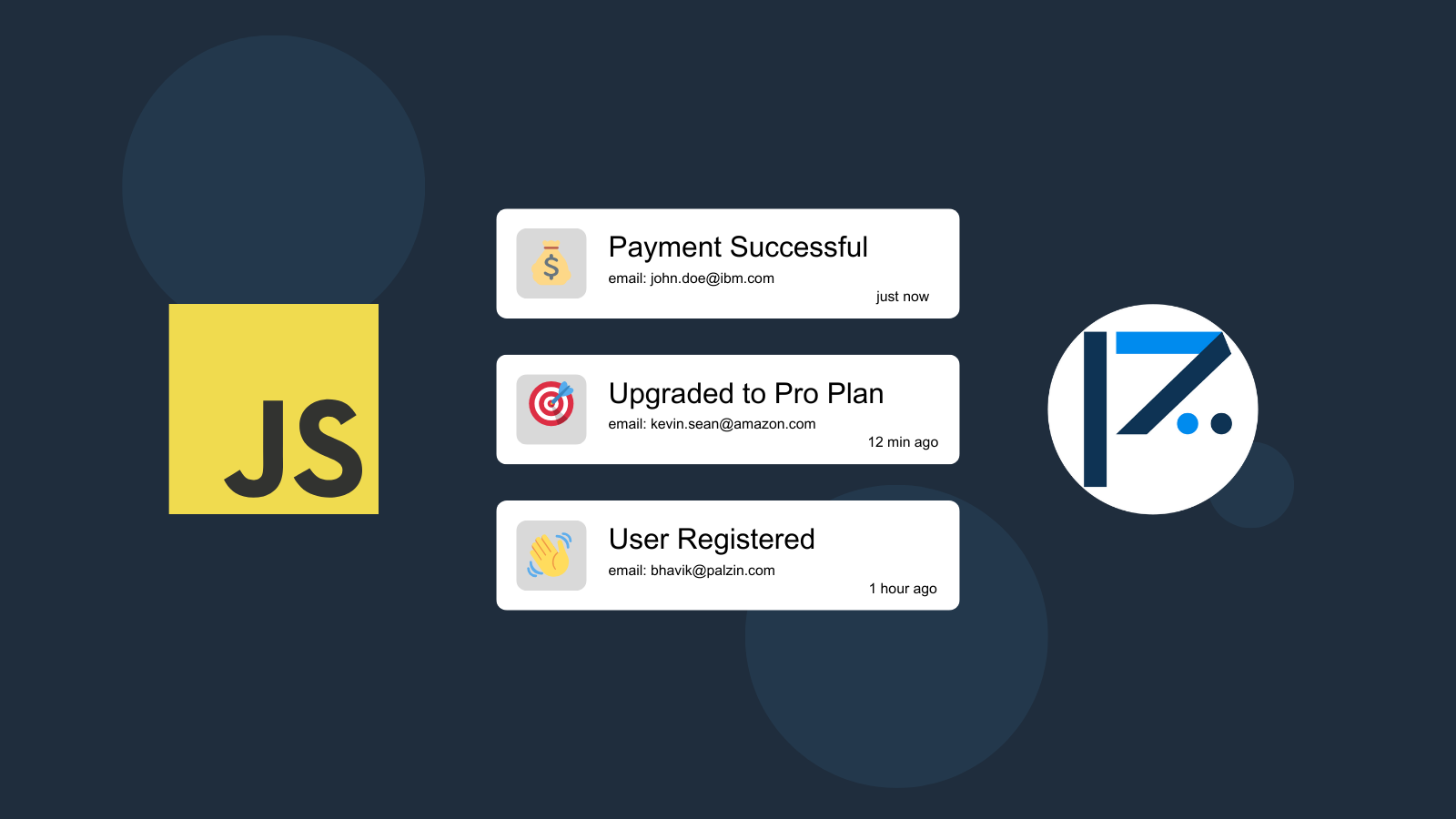
Most of the time, when building a Javascript product that requires users to authenticate and sign in to access the product, you may decide that it is essential to track the sign-in attempts.
Monitoring the sign-in events is an excellent way to track the number of users who continue to log in and use your Javascript application. This is a great way to gauge the effectiveness of your product and measure your user retention rate.
A good understanding of this metric is critical to the success of a product. It can give you great insight into how your business grows and how your users interact with your Javascript product.
An easy way to set up event tracking is to use Palzin Track, a simple event tracking tool that works seamlessly with Javascript.
Connect Palzin Track to JavaScript
All you have to do next is to copy the following code snippets into your JavaScript code and replace the YOUR_API_TOKEN and project values with your API token and project name.
Using JavaScript with Fetch
var myHeaders = new Headers();
myHeaders.append("Content-Type", "application/json");
myHeaders.append("Authorization", "Bearer YOUR_API_TOKEN");
var raw = JSON.stringify({
"project": "my-project",
"channel": "auth",
"event": "User Signed In",
"description": "email: [email protected]",
"icon": "🔓",
"notify": true
});
var requestOptions = {
method: 'POST',
headers: myHeaders,
body: raw,
redirect: 'follow'
};
fetch("https://api.palzin.live/v1/log", requestOptions)
.then(response => response.text())
.then(result => console.log(result))
.catch(error => console.log('error', error));
Using JavaScript with jQuery
var settings = {
"url": "https://api.palzin.live/v1/log",
"method": "POST",
"timeout": 0,
"headers": {
"Content-Type": "application/json",
"Authorization": "Bearer YOUR_API_TOKEN"
},
"data": JSON.stringify({
"project": "my-project",
"channel": "auth",
"event": "User Signed In",
"description": "email: [email protected]",
"icon": "🔓",
"notify": true
}),
};
$.ajax(settings).done(function (response) {
console.log(response);
});
Using JavaScript with XHR
// WARNING: For POST requests, body is set to null by browsers.
var data = JSON.stringify({
"project": "my-project",
"channel": "auth",
"event": "User Signed In",
"description": "email: [email protected]",
"icon": "🔓",
"notify": true
});
var xhr = new XMLHttpRequest();
xhr.withCredentials = true;
xhr.addEventListener("readystatechange", function() {
if(this.readyState === 4) {
console.log(this.responseText);
}
});
xhr.open("POST", "https://api.palzin.live/v1/log");
xhr.setRequestHeader("Content-Type", "application/json");
xhr.setRequestHeader("Authorization", "Bearer YOUR_API_TOKEN");
xhr.send(data);
Palzin Track is a versatile event tracking tool that isn't limited to specific use cases. It empowers you to monitor a wide range of events, whether it's tracking prelaunch waitlist signups or beta signups for a new feature or product. It works seamlessly with JavaScript and makes it easy to track almost anything in your JavaScript code.
Furthermore, Palzin Track allows you to generate charts and analytics based on your data. For instance, you have the flexibility to craft a chart illustrating the daily or monthly influx of waitlist signups for your product.
Additionally, you have the capability to establish funnels for monitoring the conversion rate from waitlist signups to paying customers, features usage in your application. Furthermore, you can generate user journeys to observe how users interact with your product once they gain access to it.
Palzin Track is accessible on both desktop and mobile platforms, offering the convenience of real-time notifications upon the addition of waitlist signups. You also have the flexibility to opt for push notifications for any other events you wish to track.
Palzin Track reveals the human stories behind your data. Make user-centric decisions that drive growth.